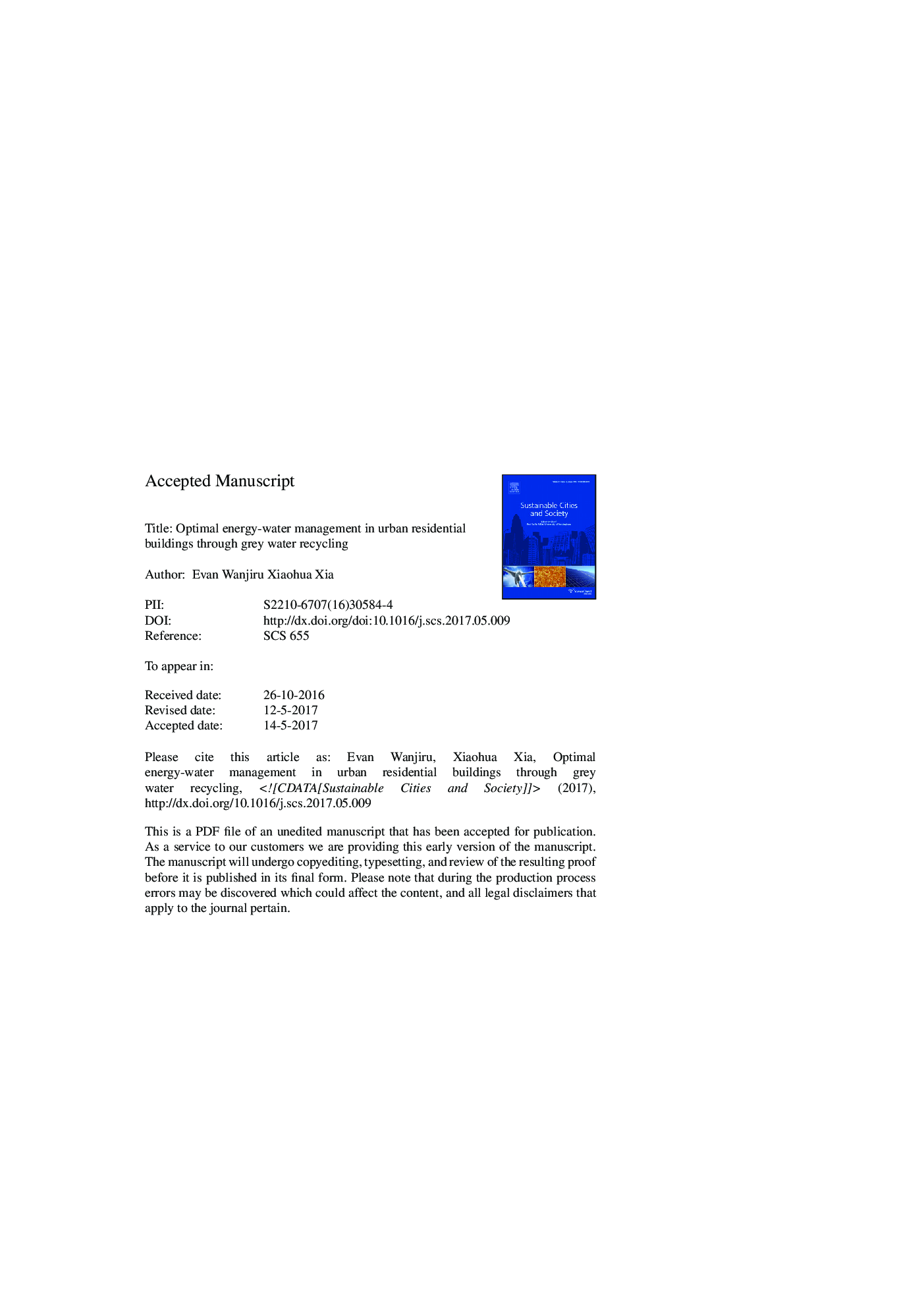| Article ID | Journal | Published Year | Pages | File Type |
|---|---|---|---|---|
| 4928039 | Sustainable Cities and Society | 2017 | 31 Pages |
Abstract
Energy and water are inseparable resources whose management in urban residential buildings is important. Continuing urbanization in developing nations is increasing the demand yet the supply is inadequate or non-existent. Decentralized urban water recycling systems are an alternative source of water that could relieve the demand from public utilities. However, there are social, economic, environmental and technological factors that affect the uptake of these systems. Although advanced water treatment technologies for decentralized systems have been developed, there are challenges in their optimal operation. This paper introduces the open loop optimal control and closed-loop model predictive control (MPC) strategies aimed at ensuring safe and reliable operation of a grey water recycling system at building level. Both controllers have shown their ability in efficiently operate the system leading to water conservation and energy cost savings. Each of these controllers has its strengths in terms of cost, ease of implementation and robustness and they should be adopted according to specific application. Their adoption can greatly improve energy and water security in urban households, reduce their demand and wastewater. Technology alone cannot solve resource insecurity, and therefore, appropriate policies, regulations, incentives and public awareness should be implemented to support such novel technologies.
Related Topics
Physical Sciences and Engineering
Energy
Renewable Energy, Sustainability and the Environment
Authors
Evan Wanjiru, Xiaohua Xia,
